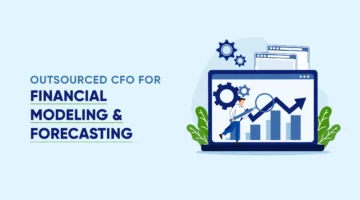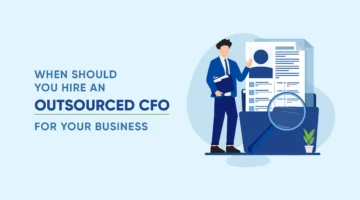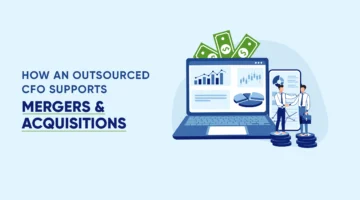Making Your Business Recession Ready
No business owner wants to think about a looming recession when there is already a long list of responsibilities to worry about day to day. Unfortunately, economic downturns are inevitable, presenting harmful short- and long-term societal and economic repercussions. Regardless, you can take preventative measures to ensure that your business is prepared to weather the storm. Through adaptive strategies, which we’ll address in this article, you can maintain control over the success of your business even when the economic landscape is unstable.
The Upsides of a Recession
Despite the inherent ensuing challenges, recessions can often bring about opportunities and positive change. Even the 2020 COVID-19 pandemic and consequent recession created a drive for adaptability, innovation, and collaborative problem-solving. In fact, recessions typically lead to less competition entering the market, unprepared competition leaving the market, and higher employee retention rates. The key to reaping the rewards in a difficult economic environment is by strategically preparing beforehand.
We recommend the following tactics to keep your business recession-ready:
Establish a Breakeven Point
Being prepared for a recession requires maintaining the balance between cash and expenses. Establishing a breakeven point—where revenue covers expenses—for your business will allow you to forecast the recession’s impact on revenue levels in the short, intermediate, and long term. Conducting a breakeven analysis allows you to prioritize functions within the company that will aid or hinder success, establish accurate operating costs, and evaluating the timing of the business’ cash flow. Additionally, it’s a good opportunity to verify that a business is not paying for unnecessary expenses, such as old employee accounts or uncancelled trial services.
The breakeven point can also guide a difficult decision-making process, especially if total revenue cannot support operating costs. The business owner can then determine a contingency plan, such as decreasing the labor force, discontinuing product lines, putting a pause on departments not necessary to survival, or pivoting to new revenue-producing activities.
Maintain a Cash Flow Forecast
In times of both prosperity and hardship, cash is king. 82% of small businesses fail due to poor cash flow management. One of the most impactful cash flow management tools is an operationally focused, rolling 13-week cashflow forecast. This allows cash inflows and outflows to be tracked on a weekly basis and to be updated in real time.
The key in this process is to continually update and refine the forecast as actual collections and expenses occur. Having a dialed-in cash flow forecast allows a company to balance AR and AP, improve collection procedures, and identify whether additional financing may be necessary.
Prioritize Financial Reporting
Often, a recession will necessitate quicker decision-making, even if business itself is moving more slowly. The additional time can be used to improve the overall financial reporting capabilities of a company. The better a business can track current trends within their company, the quicker they can adapt to the changing environment. Additionally, accurate, efficient reporting will allow a business to maximize the cash they have and make changes as needed. Improving financial reporting is not only crucial while weathering an economic recession, but is vital to the long-term health of the business.
Investing in a financial reporting software could also be a smart move for the long-term. An ERP, for example, can compile the company’s data to build out automatic reports that update in real time. This simplifies the accounting process and allows the executive team to focus on evaluating business decisions and outcomes. Though not every business will have the capacity to implement a new software during a recession, the ROI is endless for those that do.
This is an area in which companies can benefit from utilizing fractional CFO services. A fractional CFO can step in to implement reporting processes that can make the day-to-day accounting needs more streamlined. Similarly, a fractional CFO can oversee a system implementation if that is the next best step for the business. Fractional CFO services are beneficial for project-based needs, as you can receive the necessary expertise and oversight while saving on hiring costs.
Restructure as Needed
A recession is often a catalyst for a business to pivot and adapt in order to thrive. This could entail shifting supply chains, offering services in a new market, or discontinuing product lines. Consider, for example, how restaurants adapted during the pandemic by offering more delivery and takeout options when dine-in wasn’t available, or how many companies expanded work-from-home options to save on rent obligations.
Making adjustments will ensure the survival of the business and position your company for future growth. Take time to evaluate ways in which you can adjust your business model to stay afloat.
Seek Out Opportunities for Growth
Once a business has increased its financial visibility and identified the internal and external factors affecting it the most, the business can be prepared to analyze and adjust accordingly, setting the business up for future growth.
A more in-depth understanding of business-specific trends and KPIs will allow business owners to shift their focus to evaluating future hiring and growth initiatives. Additionally, when all other processes are in order, business owners can begin making up lost ground from the recession. Though stability will look different for each company, a high-level overview of stability entails having comfort in a business’ cash position as well as creating a plan for the business to move forward—whether that means branching out into a new area, developing a new product, or considering an M&A opportunity.



